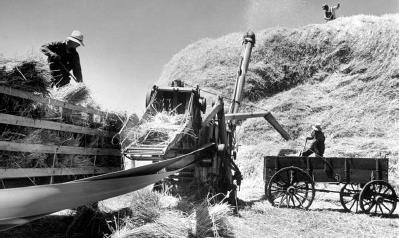The Stone Court (1941–46)Commerce Clause |
In what case did the Stone Court rule on the constitutional right to travel? |
In Edwards v. California, the Stone Court unanimously struck down a California law, called an “Okie law,” that prohibited anyone in California from transporting into the state an indigent person. The term “okie” originally referred to individuals from Oklahoma, but was later used pejoratively to describe poorer people from other states coming to settle in California. State officials charged Mr. Edwards with violating the law after he traveled to Texas and brought back his indigent brother-in-law, Frank Duncan. The Stone Court ruled that this law violated the Commerce Clause by unreasonably intruding upon interstate commerce. “The burden upon interstate commerce is intended and immediate; it is the plain and sole function of the statute,” Justice James Byrnes wrote for the Court. “Moreover, the indigent non-residents who are the real victims of the statute are deprived of the opportunity to exert political pressure upon the California legislature in order to obtain a change in policy. We think this statute must fail under any known test of the validity of State interference with interstate commerce.”
Four justices—William O. Douglas, Hugo Black, Frank Murphy, and Robert Jackson—concurred with the result but believed the case should not be decided on Commerce Clause grounds. They believed the law violated individual rights under the Fourteenth Amendment. Justice Jackson wrote that “the migrations of a human being … do not fit easily into my notions as to what is commerce.”

